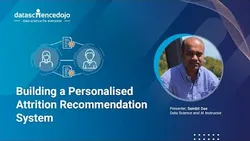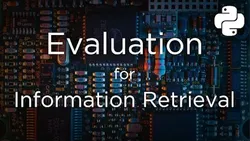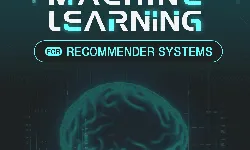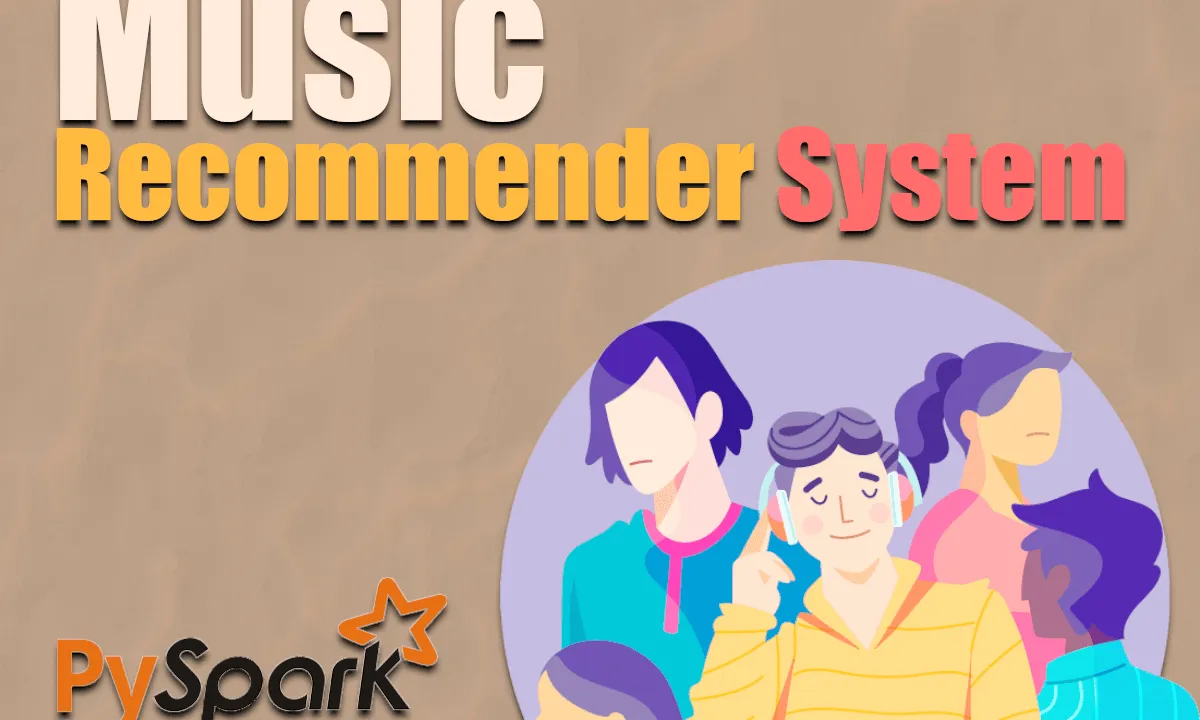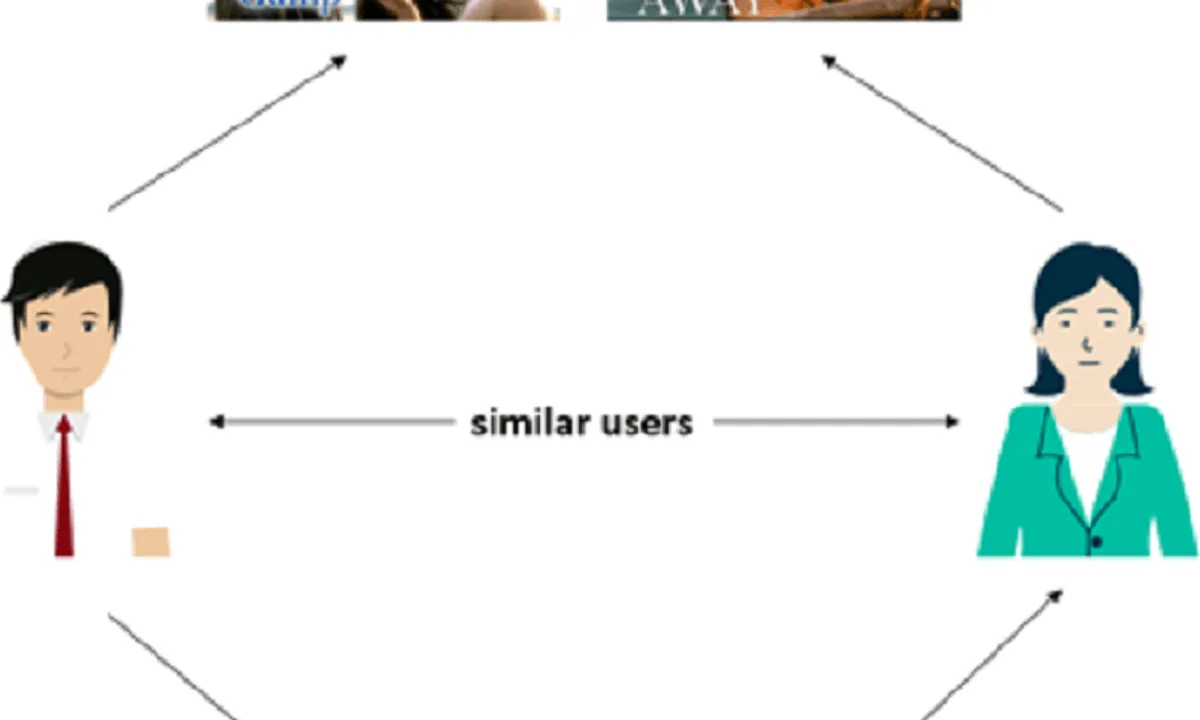Free Online Recommender Systems Courses and Certifications 2024
Recommender systems are algorithms that use data about user preferences and behavior to recommend items to users. These systems are used in a variety of applications, such as movies, music, news, books, and products. They are designed to predict what a user might like based on their past behavior and preferences.
Popular Courses
This Advanced Recommender Systems course is the perfect opportunity to learn how to use advanced machine learning techniques to build more sophisticated recommender systems. You will learn how to manage hybrid information, combine different filtering techniques, use factorization machines, identify new trends and challenges, and create new or significantly improved recommendation tools. With this course, you will be able to design more sophisticated recommender systems and solve the cross-domain recommendation problem. Take advantage of this opportunity to develop your creativity and innovation skills and create new or significantly improved recommendation tools.
Learn MoreThis course will help you build a personalised attrition recommendation system. It will cover topics such as setting up a business case, exploring data, correlation analysis, developing a recommendation strategy and implementing an attrition predictor. You will also learn how to get your point across and answer any questions you may have. This course is perfect for anyone looking to gain a better understanding of attrition and how to develop a personalised recommendation system.
Learn MoreThis course provides an introduction to evaluation measures for search and recommender systems. It covers topics such as offline metrics, dataset and retrieval 101, [email protected], MRR, [email protected], [email protected], and [email protected]. It also provides an overview of the pros and cons of each evaluation measure. The course is taught in Python and provides a comprehensive overview of the evaluation measures used in search and recommender systems. It is perfect for anyone looking to gain a better understanding of these systems and how to evaluate them.
Learn MoreThis course introduces you to the leading approaches in recommender systems. After completing it, you'll be able to design recommender systems tailored for new application domains, also considering surrounding social and ethical issues. You'll learn how to distinguish recommender systems according to their input data, their internal working mechanisms, and their goals. You'll also have the tools to measure the quality of a recommender system and to incrementally improve it with the design of new algorithms. Unleash your creativity and innovation skills to design a new recommender system and improve the quality of the predictions. Click now to learn more!
Learn MoreThis course, Recommender Systems: Behind the Screen, is a great opportunity to explore and learn the best methods and practices in recommender systems. It is developed by IVADO, HEC Montréal and Université de Montréal and guided by seven international experts from both Academia and Industry. The course is designed for industry professionals and academics with basic knowledge in mathematics and programming, and graduate students in science and engineering. It covers topics such as machine learning, evaluation methods, advanced modelling, contextual bandits, ranking methods and fairness and discrimination in recommender systems. It takes 6 weeks to complete the course and there are comprehensive quizzes and tutorials to evaluate your understanding. Register now and join this special learning journey!
Learn MoreThis course is perfect for anyone interested in learning about Recommender Systems. It covers the basic concept, Collaborative Filtering, Recommender System with Deep Learning, and Further Issues of Recommender Systems. It requires basic knowledge of Python programming and mathematics including matrix multiplications, conditional probability, and basic machine learning algorithms. With this course, you will gain a comprehensive understanding of the fundamentals of Recommender Systems and be able to apply them to real-world problems. So, if you are looking to learn more about Recommender Systems, this course is for you.
Learn MoreThis course will teach you how to build a music recommendation engine using the AudiSet dataset, embedding generator, and ANNOY. You will learn how to generate embedding from WAV files, process AudioSet data, and understand the ANNOY algorithm. Finally, you will be able to code a recommendation engine with ANNOY. This course is perfect for anyone interested in learning how to build a music recommendation engine.
Learn MoreThis 2-hour long project-based course will teach you how to build a Recommender System in Python. Learn how to code by hand 4 different types of recommender systems that mimic the techniques of Amazon, Netflix, and YouTube. Discover the 'magic' algorithms that these well-known services use to uncannily predict what videos or movies they would enjoy or what products they might be interested in buying. This course is best suited for learners based in the North America region, with plans to expand to other regions. Sign up now and start building your own Recommender System in Python!
Learn MoreThis course, Building Recommender Systems with Machine Learning and AI, taught by Amazon's pioneer in the field, Frank Kane, will teach you how to create machine learning recommendation systems with deep learning, collaborative filtering, and Python. You'll learn to understand and apply user-based and item-based collaborative filtering, create recommendations using deep learning, build recommendation engines with neural networks, make session-based recommendations with recurrent neural networks, and more. You'll also learn to apply real-world learnings from Netflix and YouTube to your own recommendation projects, combine many recommendation algorithms together in hybrid and ensemble approaches, and use Apache Spark to compute recommendations at large scale on a cluster. This course is perfect for those looking to become valuable to the largest, most prestigious tech employers.
Learn MoreAre you curious about how Netflix, Amazon and YouTube make their recommendations? Do you want to learn how to build a Recommendation Engine from scratch? This course is the perfect place to start! You will learn the basic concepts of a Recommendation Engine and be able to build a simple but functional one using simple math and basic Python programming skills. The course will walk you through the Collaborative Filtering algorithm used by Netflix to recommend movies to users based on the tastes of other similar users. So join now and make your first big steps towards the future!
Learn MoreThis course is perfect for anyone interested in learning how to create a Music Recommender System using Pyspark. You'll learn how to use the ALS Algorithm to suggest new tracks to different users based on the songs they've been listening to. As a prerequisite, it's suggested that you have a basic understanding of the ALS Algorithm. This course is best suited for learners based in the North America region, but we're working on providing the same experience in other regions. So don't miss out on this great opportunity to learn how to create a Music Recommender System using Pyspark!
Learn MoreThis 1-hour project-based course on Building Similarity Based Recommendation System is perfect for learners based in North America. Learn how to create user item interactions matrix from the original dataset and recommend items to a new user. Understand how similarity based collaborative filtering recommendation systems work and how to compute similarity between users. Get the skills to collect data for building such systems and recommend items based on products interacted by other similar users. Don't miss out on this great opportunity to learn and grow your skills!
Learn MoreGet a comprehensive overview of Building a Recommendation System with Python Machine Learning & AI
Learn MoreGet a comprehensive overview of Building Recommender Systems with Machine Learning and AI
Learn MoreExplore the essentials of Lets build a Music Recommender!
Learn MoreGet a comprehensive overview of Recommendation Engine Bootcamp with 3 Capstone Projects
Learn More Frequently Asked Questions and Answers
Q1: What is an example of a recommender system?
Netflix, YouTube, Tinder, and Amazon are all examples of recommender systems in use. These systems entice users with relevant suggestions based on the choices they make. Additionally, recommender systems have the potential to enhance experiences for news websites.
Q2: What are the two main types of recommender systems?
There are two main types of recommender systems – personalized and non-personalized. Non-personalized recommendation systems, such as popularity-based recommenders, suggest the most popular items to users. For example, they may recommend the top-10 movies, top selling books, or the most frequently purchased products.
Q3: What are the popular recommender systems?
Recommendation systems are a set of algorithms utilized to suggest items to users based on data gathered from the user. These systems have gained widespread usage and are frequently observed in online stores, movie databases, and job finders.
Q4: What are the three types of recommendation systems?
There are three main types of Recommender Systems: collaborative filtering, content-based, and hybrid. Some of the most popular examples of Recommender Systems include the ones used by Amazon, Netflix, and Spotify. Collaborative filtering systems utilize past user behavior to generate recommendations for new products.
Q5: What Recommender Systems courses can I find on AZ Class?
On this page, we have collected free or certified 25 Recommender Systems online courses from various platforms. The list currently only displays up to 50 items. If you have other needs, please contact us.
Q6: Can I learn Recommender Systems for free?
Yes, If you don’t know Recommender Systems, we recommend that you try free online courses, some of which offer certification (please refer to the latest list on the webpage as the standard). Wish you a good online learning experience!

